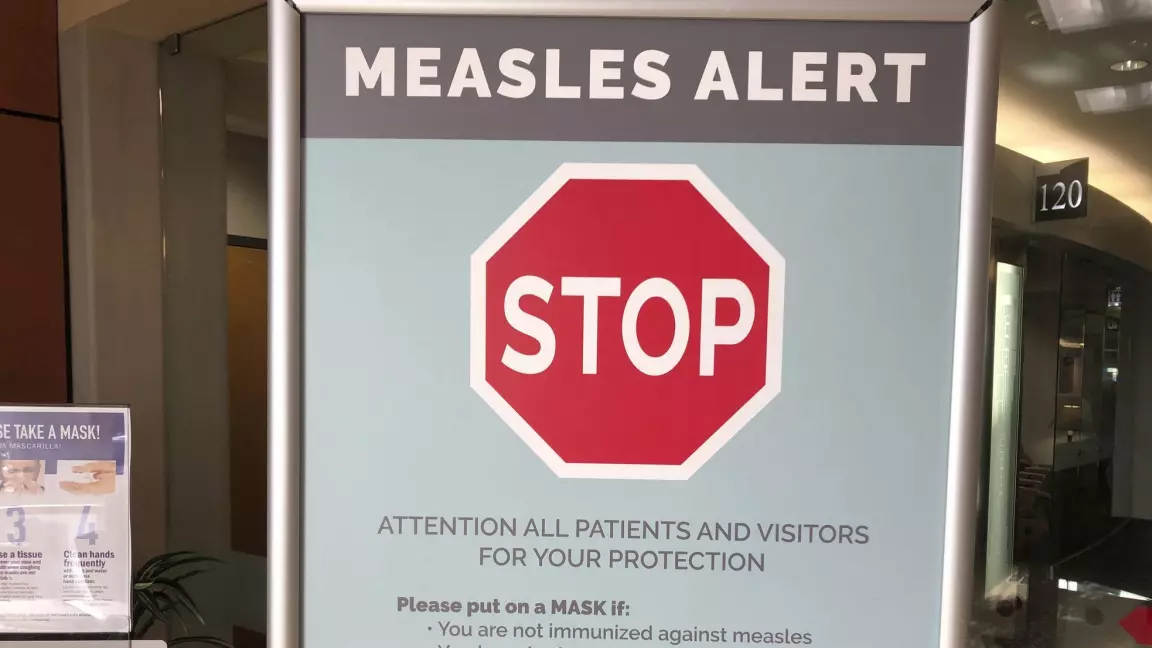Health
The Connection Between Healthy Teeth and Happiness

|
|
The link between oral hygiene and emotional wellbeing is hard to ignore. People feel more confident with a healthy smile. Smiling has been scientifically proven to release those feel-good endorphins (which act as natural antidepressants) and pain-relieving neurotransmitters like dopamine and serotonin.
Do you tend to shy away from showing your teeth in pictures? Do you sometimes envy those with white, beautiful teeth? Having low self-esteem can cause a lot of internal, emotional damage. If you’re unsatisfied with your smile, you might experience unhappiness in many aspects of your life. You deserve to feel good, inside and out.
There are ways that you can improve the look of your teeth and gums. If you want to enhance your self-confidence and improve your smile, take a look at these tips.
Brush and Floss Every Day
Many people are aware of the importance of dental hygiene, and that regular brushing and flossing are essential to a healthy smile. It’s recommended to brush up to three times a day and floss at least once per day. If you check out this dentist in Oxnard CA, they’ll recommend using interdental brushes if dental floss is not up to your liking.
Sometimes people can’t avoid genetic oral issues like gum disease, and have a hard time getting rid of stains, even with regular brushing flossing. Did you know that 95% of today’s toothpaste contains Fluoride, which over time, can discolour your teeth? You might want to consider the benefits of dentures.
Find a clinic that offers high-quality, natural-looking dentures in Winnipeg and avoid using toothpaste that causes harmful tooth decay. A beautiful set of dentures will improve your mood, the overall health of your mouth, and your confidence will soar.
Eat Well
Eating well doesn’t merely mean reducing sweets and candy; a well-balanced diet contains essential minerals, nutrients, and vitamins that maintain physical and mental health.
Nutritious foods contribute to healthy teeth and gums. Fresh ingredients can help prevent tooth and gum decay, and eating foods that contain ingredients like Omega-3 fatty acids (such as oily fish and nuts) can help increase feelings of happiness. Omega-3 contains anti-inflammatory properties that interact with the brain to alleviate depression.
Drink Water
The acids from food, plaque, and beverages can harm your tooth enamel, but drinking lots of water dilutes the acids to help protect your teeth. One glass of water can wash away the residue that might cause stains, reduce the bacteria that cause bad breath, and shield your tooth enamel.
Drink about three litres of water a day for optimal health. Three litres might sound like a lot, but if you drink a glass of water every hour or so during the day, you’ll have three litres down in no time!
Reduce Stress
Stress can weaken the immune system and trigger short-sighted reward systems, such as cravings for sugar and carbohydrates. Both of these things can take a toll on oral health, so practice de-stressing activities every day. Consider mindful meditation, colouring, and long walks as ways to unwind when you’re feeling anxious.
In today’s fast-paced world, it’s easy to forget about the importance of oral health. The body and mind are connected, and every part plays an integral role in how we feel and behave. With a healthy set of teeth, you’ll feel better about yourself and be smiling from ear to ear.
Health
Quebec successfully pushes back against rise in measles cases – CBC.ca


Quebec appears to be winning its battle against the rising tide of measles after 45 cases were confirmed province-wide this year.
“We’ve had no locally transmitted measles cases since March 25, so that’s good news,” said Dr. Paul Le Guerrier, responsible for immunization for Montreal Public Health.
There are 17 patients with measles in Quebec currently, and the most recent case is somebody who was infected while abroad, he said.
But it was no small task to get to this point.
Le Guerrier said once local transmission was detected, news was spread fast among health centres to ensure proper protocols were followed — such as not letting potentially infected people sit in waiting rooms for hours on end.
Then about 90 staffers were put to work, tracking down those who were in contact with positive cases and are not properly vaccinated. They were given post-exposure prophylaxis, which prevents disease, said Le Guerrier.
From there, a vaccination campaign was launched, especially in daycares, schools and neighbourhoods with low inoculation rates. There was an effort to convince parents to get their children vaccinated.
Vaccination in schools boosted
Some schools, mostly in Montreal, had vaccination rates as low as 30 or 40 per cent.
“Vaccination was well accepted and parents responded well,” said Le Guerrier. “Some schools went from very low to as high as 85 to 90 per cent vaccination coverage.”
But it’s not only children who aren’t properly vaccinated. Le Guerrier said people need two doses after age one to be fully inoculated, and he encouraged people to check their status.
There are all kinds of reasons why people aren’t vaccinated, but it’s only about five per cent who are against immunization, he said. So far, some 10,000 people have been vaccinated against measles province-wide during this campaign, Le Guerrier said.
The next step is to continue pushing for further vaccination, but he said, small outbreaks are likely in the future as measles is spreading abroad and travellers are likely to bring it back with them.
Need to improve vaccination rate, expert says
Dr. Donald Vinh, an infectious diseases specialist from the McGill University Health Centre, said it’s not time to rest on our laurels, but this is a good indication that public health is able to take action quickly and that people are willing to listen to health recommendations.
“We are not seeing new cases or at least the new cases are not exceeding the number of cases that we can handle,” said Vinh.
“So these are all reassuring signs, but I don’t think it’s a sign that we need to become complacent.”
Vinh said there are also signs that the public is lagging in vaccine coverage and it’s important to respond to this with improved education and access. Otherwise, microbes capitalize on our weaknesses, he said.
Getting vaccination coverage up to an adequate level is necessary, Vinh said, or more small outbreaks like this will continue to happen.
“And it’s very possible that we may not be able to get one under control if we don’t react quickly enough,” he said.
Health
Pregnant women in the Black Country urged to get whooping cough vaccine – BBC.com


Pregnant women urged to get whooping cough vaccine
Pregnant women in the Black Country are being urged to get vaccinated against whooping cough after a rise in cases.
The bacterial infection of the lungs spreads very easily and can cause serious problems, especially in babies and young children.
The Black Country Integrated Care Board (ICB) is advising pregnant women between 16 and 32 weeks to contact their GP to get the vaccine so their baby has protection from birth.
The UK Health Security Agency warned earlier this year of a steady decline in uptake of the vaccine in pregnant women and children.
Symptoms of the infection, also known as “100-day cough”, are similar to a cold, with a runny nose and sore throat.
Sally Roberts, chief nursing officer for the ICB, which covers Wolverhampton, Dudley, Walsall and Sandwell, said anyone could catch it, but it was more serious for young children and babies.
“Getting vaccinated while you’re pregnant is highly effective in protecting your baby from developing whooping cough in the first few weeks of their life – ideally from 16 weeks up to 32 weeks of pregnancy,” she said.
“If for any reason you miss having the vaccine, you can still have it up until you go into labour.”
Follow BBC West Midlands on Facebook, X and Instagram. Send your story ideas to: newsonline.westmidlands@bbc.co.uk
Health
Measles cases stabilize in Montreal – CityNews Montreal


The number of measles cases has stabilized, according to the Montreal Public Health.
Since March 25, there have been no contaminations reported within the community.
“Our teams have identified all contact cases of measles,” said media relations advisor Geneviève Paradis. “It’s a laborious task: each measles case produces hundreds of contacts.”
All community transmission cases since February 2024 have been caused by returning travelers who were either unvaccinated or partially vaccinated.
Currently, there are 18 measles cases in Montreal – with 46 total in Quebec. This according to the April 18 figures from the provincial government.
“With the summer vacations approaching, if you’re travelling, it is essential to check if you are protected against measles,” explained Paradis.
According to Montreal Public Health, a person needs to have received two doses after the age of 12 months to be immunized against the virus.
They’ve launched a vaccination campaign throughout the region, and currently, 11,341 people have been vaccinated against measles in Montreal between March 19 and April 15.
Vaccination is also being provided in schools and at local service points.
“The vaccination operation is under the responsibility of the five CIUSSS of the territory,” concluded Paradis.
-



 Tech22 hours ago
Tech22 hours agoCytiva Showcases Single-Use Mixing System at INTERPHEX 2024 – BioPharm International
-



 Health18 hours ago
Health18 hours agoSupervised consumption sites urgently needed, says study – Sudbury.com
-
News18 hours ago
Canada's 2024 budget announces 'halal mortgages'. Here's what to know – National Post
-



 Science5 hours ago
Science5 hours agoJeremy Hansen – The Canadian Encyclopedia
-
News17 hours ago
2024 federal budget's key takeaways: Housing and carbon rebates, students and sin taxes – CBC News
-



 Tech20 hours ago
Tech20 hours agoNew EV features for Google Maps have arrived. Here’s how to use them. – The Washington Post
-
Tech23 hours ago
Nintendo Indie World Showcase April 2024 – Every Announcement, Game Reveal & Trailer – Nintendo Life
-



 Science18 hours ago
Science18 hours agoGiant, 82-foot lizard fish discovered on UK beach could be largest marine reptile ever found – Livescience.com





